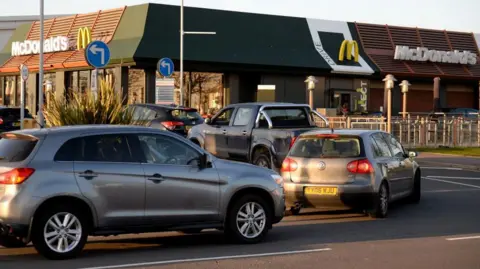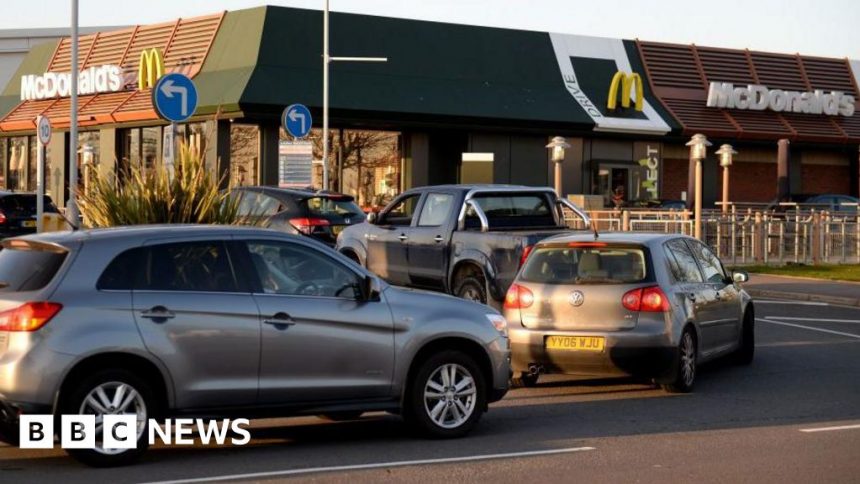Bacon ice cream and nugget overload sees misfiring McDonald’s AI withdrawn
 Getty Images
Getty ImagesMcDonald’s is removing artificial intelligence (AI) powered ordering technology from its drive-through restaurants in the US, after customers shared its comical mishaps online.
A trial of the system, which uses voice recognition software to process orders, was announced in 2019.
It has not proved entirely reliable however, resulting in viral videos of bizarre misinterpreted orders ranging from bacon-topped ice cream to hundreds of dollars worth of chicken nuggets.
McDonald’s told franchisees it would remove the tech from the more than 100 restaurants it has been testing it in by the end of July, according to a trade publication.
However, it made clear this was not the end of the line for such systems, saying it was confident that “a voice-ordering solution for drive-thru will be part of our restaurants’ future,” a spokesperson told Restaurant Business.
The technology has been controversial from the outset, though initially concerns centred on its potential to make people’s jobs obsolete.
However, it has become apparent that replacing human restaurant workers may not be as straightforward as people initially feared – and the system’s backers hoped.
The AI order-taker’s mishaps have been documented online.
In one video, which has 30,000 views on TikTok, a young woman becomes increasingly exasperated as she attempts to convince the AI that she wants a caramel ice cream, only for it to add multiple stacks of butter to her order.
In another, which has 360,000 views, a person claims that her order got confused with one being made by someone else, resulting in nine orders of tea being added to her bill.
Another popular video includes two people laughing while hundreds of dollars worth of chicken nuggets are added to their order, while the New York Post reported another person had bacon added to their ice cream in error.
The ending of this trial though does not mean an end to concerns about AI reshaping the workplace.
IBM, which developed the technology used at the drive-throughs, said it would continue to work with McDonald’s in the future.
“This technology is proven to have some of the most comprehensive capabilities in the industry, fast and accurate in some of the most demanding conditions,” it said in a statement.
“While McDonald’s is re-evaluating and refining its plans for AOT [Automated Order Taking], we look forward to continuing to work with them on a variety of other projects.”
The BBC has approached McDonald’s for comment.







